LCD or Plasma--brand suggestions
cookinmama
13 years ago
Related Stories
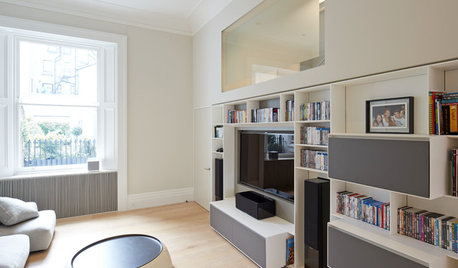
MEDIA ROOMS10 Ways to Make Your Home Theater More Awesome
Check out these ideas for bringing more tech sophistication to your media space
Full Story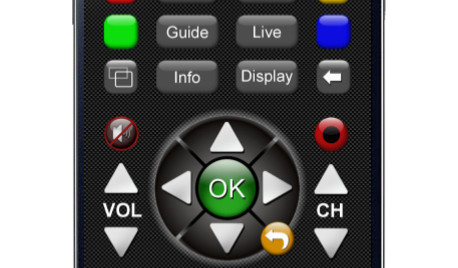
HOME TECHNew TV Remote Controls Promise to Do More — Without the Struggle
Dim your lights, set up user profiles and discover a remote you can't lose. Welcome to the latest and greatest way to change the channel
Full Story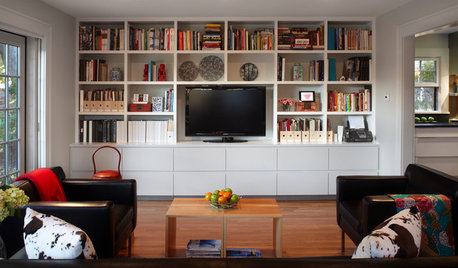
GREAT HOME PROJECTSHow to Get That Built-in Media Wall You Really Want
New project for a new year: Tame clutter and get a more stylish display with a media unit designed to fit your space just right
Full Story
LIGHTINGWhat to Know About Switching to LED Lightbulbs
If you’ve been thinking about changing over to LEDs but aren't sure how to do it and which to buy, this story is for you
Full Story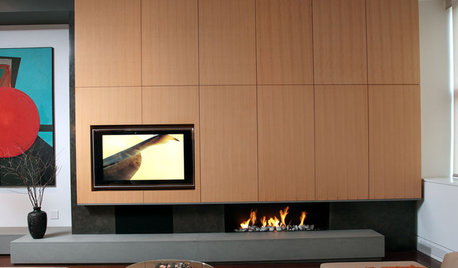
MOST POPULAR7 Ways to Rock a TV and Fireplace Combo
Win the battle of the dueling focal points with a thoughtful fireplace arrangement that puts attention right where you want it
Full Story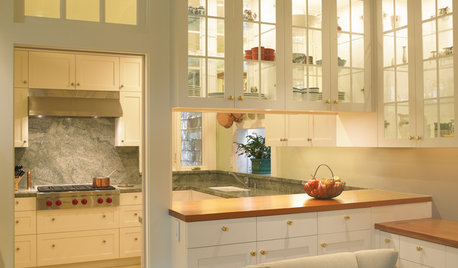
KITCHEN DESIGNHave Your Open Kitchen and Close It Off Too
Get the best of both worlds with a kitchen that can hide or be in plain sight, thanks to doors, curtains and savvy design
Full Story
HEALTHY HOME12 Ways to Set Up Your Kitchen for Healthy Eating
Making smart food choices is easier when your kitchen is part of your support team
Full Story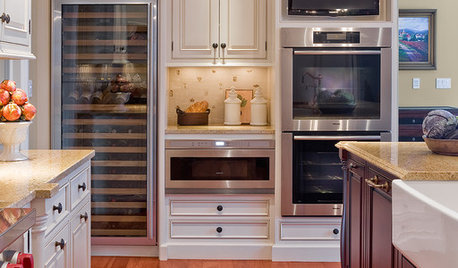
KITCHEN DESIGNGlued to the Tube: 14 Ways to Put a TV in the Kitchen
If you must, here's how to work a flat screen into your kitchen design
Full Story
KITCHEN DESIGNKitchen of the Week: Navy and Orange Offer Eclectic Chic in California
Daring color choices mixed with a newly opened layout and an artful backsplash make for personalized luxury in a San Francisco kitchen
Full Story
HOUSEKEEPINGGet Glass Windows and Doors Gleaming Clean
Preserve a spotless view with these guidelines for keeping soap scum, hard water spots and dirt at bay on glass surfaces around the home
Full StorySponsored
More Discussions






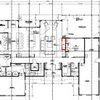
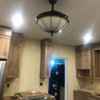
sushipup1
dodge59
Related Professionals
Coronado Home Automation & Home Media · Fort Lauderdale Home Automation & Home Media · Fox Chapel Home Automation & Home Media · Lincolnwood Home Automation & Home Media · Minnetonka Home Automation & Home Media · Palo Alto Home Automation & Home Media · Pittsburgh Home Automation & Home Media · San Fernando Home Automation & Home Media · Scottsdale Home Automation & Home Media · Tamiami Home Automation & Home Media · Tarpon Springs Home Automation & Home Media · Temecula Home Automation & Home Media · Lake Nona Electricians · Springdale Handyman · Wolf Trap Handymanmaryland_irisman
dadoes
maryland_irisman
netlos
tigerbangs
maryland_irisman
aliris19
maryland_irisman
jimisham